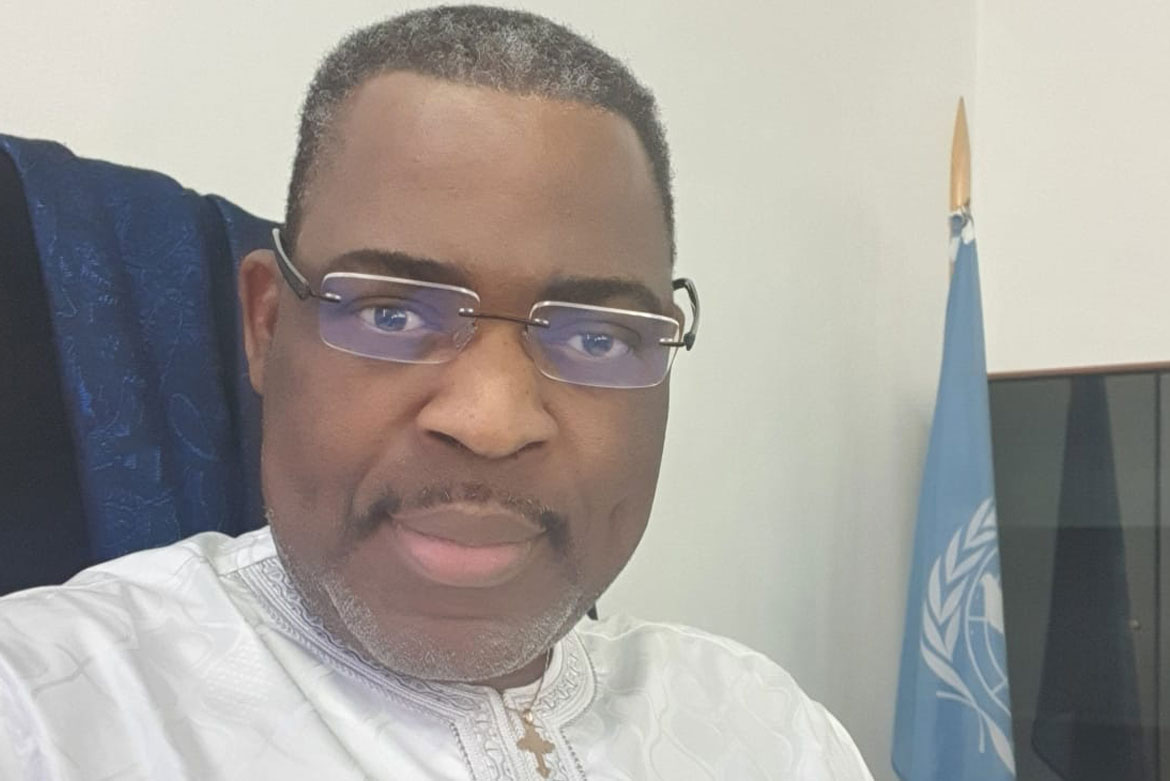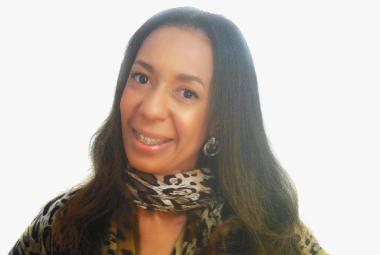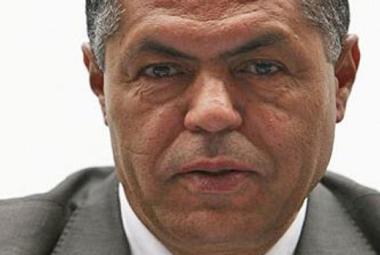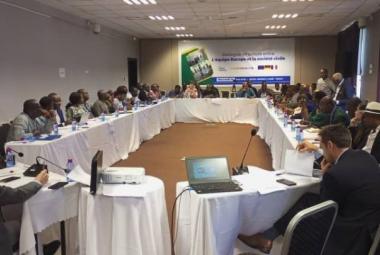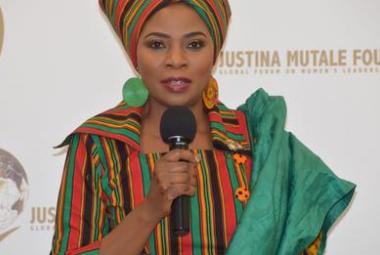By Mr. Marcel Akpovo, Regional Representative, United Nations Office of the High Commissioner for Human Rights (OHCHR) for East Africa & Representative to the African Union.
The ongoing 2022 Eighth African Regional Forum on Sustainable Development with the Theme, ‘Building forward better: A green inclusive and resilient Africa poised to achieve the 2030 Agenda and Agenda 2063’ set out to take stock of progress, lessons learnt, challenges facing the education sector and to deliberate on strategies of building back better-quality education in Africa a head of the High - Level Political Forum scheduled to take place in July 2022. This op-ed provides a synopsis of some of the challenges affecting the education sector and proposes strategies for building back better education sector in Africa.
As Nelson Mandela once said, “Education is the most powerful weapon which you can use to change the world”. This is not just a wisdom-based statement but certainly a cantic for the power of education versus ignorance.
Unfortunately, since the onset of Covid-19 this most powerful of weapons has been blunted out, with learning interrupted for many students and people across Africa. The COVID-19 pandemic has caused the largest ever global disruption of education - a fundamental human right in itself-, which is also critical for the realization of all other human rights.
Analysis of trends from UNESCO Covid 19 Education Response, global monitoring report on school closures, revealed that all the countries in Africa with the exception of Burundi closed schools in the first semester of 20201 due to the pandemic. Following school closures, education approaches have changed significantly, with a distinctive rise in e-learning, whereby teaching is undertaken remotely and on digital platforms. This development has also brought attention to concerns around the digital divide – the gap between those who have computers and online access and those who do not – and its resulting impact on equity. According to a joint report published by UNICEF and the International Telecommunication Union (ITU) in 2020, the gap in the mobile broadband adoption and internet use between developed and developing countries is especially large, putting the almost 1.3 billion school-age children mostly from low-income countries and rural regions at risk of missing out on their education because they lack access to the internet at home.” The report estimates that, in East and Southern Africa an estimated 191 million (88%) of School age children between the age category of 3-17 years were unconnected at home, while in West and Central Africa an estimated 194 million learners (95%) in the same age category were also unconnected2.
The gap in the mobile broadband adoption and internet use between developed and developing countries is especially large, putting the almost 1.3 billion school-age children mostly from low-income countries and rural regions at risk of missing out on their education because they lack access to the internet at home3 . School closures has also had its adverse effects including exacerbating the gender divide. Analysis of trends indicates that there are greater learning losses among girls and an increase in their risk of facing child labor, gender-based violence, early marriage, and pregnancy4 . Additionally, children in situations of vulnerability such as children with disabilities, children in rural areas have also been confronted with particular challenges in participating effectively in online learning5. For example, children in rural areas in many parts of Africa without proper infrastructure and technology have also faced challenges in accessing internet and online learning services. This stems from challenges of the digital divide between rural and urban settings, the global north and southern countries have also continued to encounter widening inequalities in the enjoyment of the right to education.
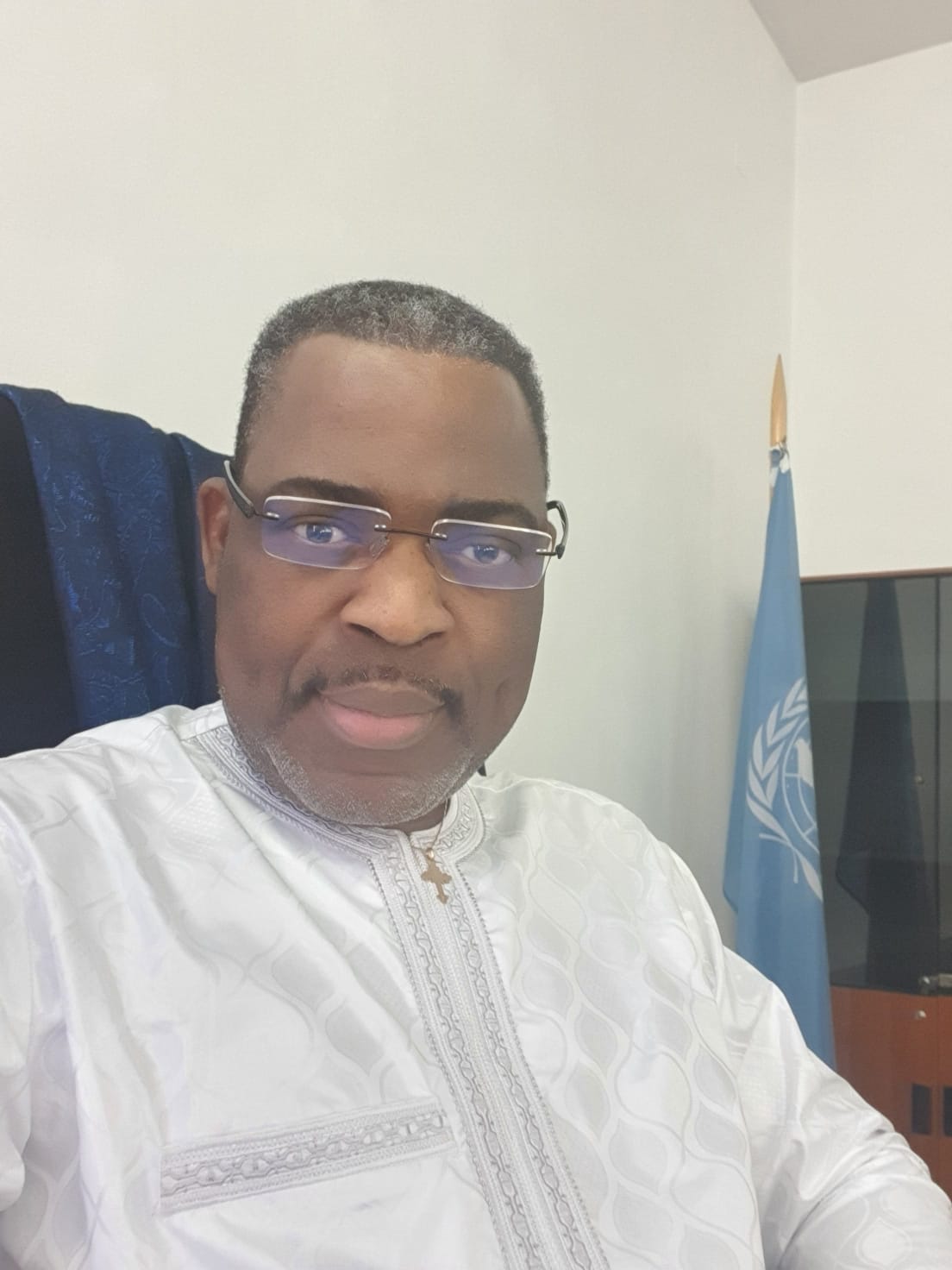
The protracted school closures have also presented a diverse range of challenges including high risk of children losing their learning, food and safety, with the most marginalized children – who are the most likely to drop out altogether. Analysis of trends across Africa indicates that, Uganda is one of the countries in the World that has had the longest period of school closure protracted up to a period of two years6. Country-wide school closures in Uganda have disrupted learning, threatened the social and mental health of the youth7. Additionally, it is also revealed that, at least 644,955 teenage pregnancies were recorded during the COVID-19 lockdown8. Similar trends were observed in other African countries such as Malawi9, South Sudan10, and Tanzania11. These trends revealed a strong connection between girls leaving or being out of school and being forced into child marriage— with high prevalence of teenage pregnancies.
In spite of the concerns above, there are a few examples of good practices from surveys conducted on the effects of Covid 19 on Education in Africa with specific focus on the use of technology. For example, the Government of Namibia, for example, was proactive in finding out the status of all educational institutions, motivated and encouraged a lot of sharing of resource and best practice, bringing all stakeholders together and allowing them to share their stance and progress regarding online learning and teaching nationally with everyone on national television12. In Cameroon too, the role of the national government in coordinating discussions about how best to make appropriate communication and media resources available for education was crucial.
Prior to Covid 19 pandemic, most African countries’ education systems were already grappling with a diverse range of challenges including, (but not limited to): poor investments and underfunding. 13., poverty and income inequalities which had continued to perpetuate discrimination leading to education exclusion. Majority of African countries did not spend more than 20 percent of their national budgets on education and even countries that had spent 20 percent of their national budget continued to face challenges. For example, Burkina Faso, spent nearly one quarter of its budget on education, but was still confronted with one of the biggest out of school populations in Africa because of its extremely low gross domestic product14 . Analysis of trends across the Africa region reveals that, many countries on the continent are grappling with progressive realization of the right to education.
In order to mitigate this challenge, there is a need for renewed political and policy commitment by African states to increase financial investments for the education sector over and above the 20 percent of national budgets, which will guarantee sufficient, equitable and effective education financing for improved learning outcomes.
In order to build back better rights-based, gender sensitive, resilient and quality educational systems, it is imperative to draw on some of the already emerging good practices in addition to re-imagining new pathways to bridge digital divide by increasing investments in infrastructure and technology to scale-up and facilitate online learning, identify new strategies for strengthening multi-stakeholder engagement and partnerships, putting rights at the center of all recovery efforts in line with the UN SecretaryGeneral’s Call to Action for human rights.
More concerted effort should be made by all actors at national level, Government, Civil Society, Academia, to redefine a new social contract drawing on states’ human rights obligations. Efforts should aim at reassessing the roles and responsibilities of the Government and all actors to frame a new social contract strengthen recovery efforts geared towards building back better quality, inclusive and resilient education systems.
A system strengthening approach for improved learning outcomes in all contexts would be critical to ensuring a more equitable distribution of learning outcomes, particularly for disadvantaged groups. Investment at systems level is an enabler for education reforms to build on pockets of good practice and ensure sustainability i.e. irreversible gains in learning.
Indeed, Education is a fundamental right that enables access to all other human rights. It has played a transformational role at turning points in human history. In today’s complex and rapidly changing world marked by progress but also with increased vulnerabilities, diseases and inequalities, education itself needs to evolve and adapt to how the future is being shaped. Most importantly in Africa.
Education is the key to a common, better future, one with dignity and rights for all. Investing in high quality education, including human rights education, is the most cost-effective way to drive economic and social development, to improve skills and opportunities for young people, and certainly to unlock progress towards the Sustainable Development Goals’ aspiration/commitment to leave no one behind.
Education is the golden thread that runs through all the 17 SDGs. Let us make it inclusive of equitable quality that enables sustainable growth, social cohesion and stability; all which are fundamental building blocks for promoting human rights, creating peace, prosperity and development.
As the UN Secretary-General emphasized in “Our Common Agenda”, education is a key element of a new social contract and a foundation for tolerance, peace, human rights and sustainable development.
By Mr. Marcel Akpovo,
Regional Representative, United Nations Office of the High Commissioner for Human Rights (OHCHR) for East Africa & Representative to the African Union.
1 UNESCO Covid 19 Education Response retrieved from https://covid19.uis.unesco.org/global-monitoring-schoolclosures-covid19/regional-dashboard/
2 https://www.unicef.org/press-releases/two-thirds-worlds-school-age-children-have-no-internet-access-home-newunicef-itu
3 ibid
4 https://www.worldbank.org/en/news/press-release/2021/12/06/learning-losses-from-covid-19-could-cost-thisgeneration-of-students-close-to-17-trillion-in-lifetime-earnings
5 https://www.worldbank.org/en/news/press-release/2021/12/06/learning-losses-from-covid-19-could-cost-thisgeneration-of-students-close-to-17-trillion-in-lifetime-earnings
6 https://www.dw.com/en/uganda-ends-worlds-longest-covid-school-closures/a-603
7 https://static1.squarespace.com/static/5be066eca9e028fe088be707/t/5fd3a8b8872d8f1a0aceac6f/1607706809187/Final+Paper+_+Education+Group+_+GSFP+Cohort+3.pdf
8 https://www.independent.co.ug/ugandas-teenage-pregnancies-five-times-higher-than-covid-19-positive-cases/
9 https://www.maravipost.com/teenage-pregnancies-and-marriages-on-the-rise-in-malawi-due-to-covid-19-pandemic/
10 https://www.bing.com/search?q=teenage+preganancies+in+in+south+sudan&cvid=e67e8ea788ff4c77abdefeee670c58 f6&aqs=edge..69i57.14770j0j1&pglt=299&FORM=ANNTA1&PC=U531
11 https://www.bing.com/search?q=teenage+pregancies+in+tanzania&cvid=f7b050863b514d36831f7868208b99a5&aqs= edge..69i57j0.9757j0j1&pglt=299&FORM=ANNTA1&PC=U531
12 ibid
13 https://www.hrw.org/sites/default/files/media_2020/08/Discussion%20Paper%20- %20Covid%20for%20ACERWC.pdf



